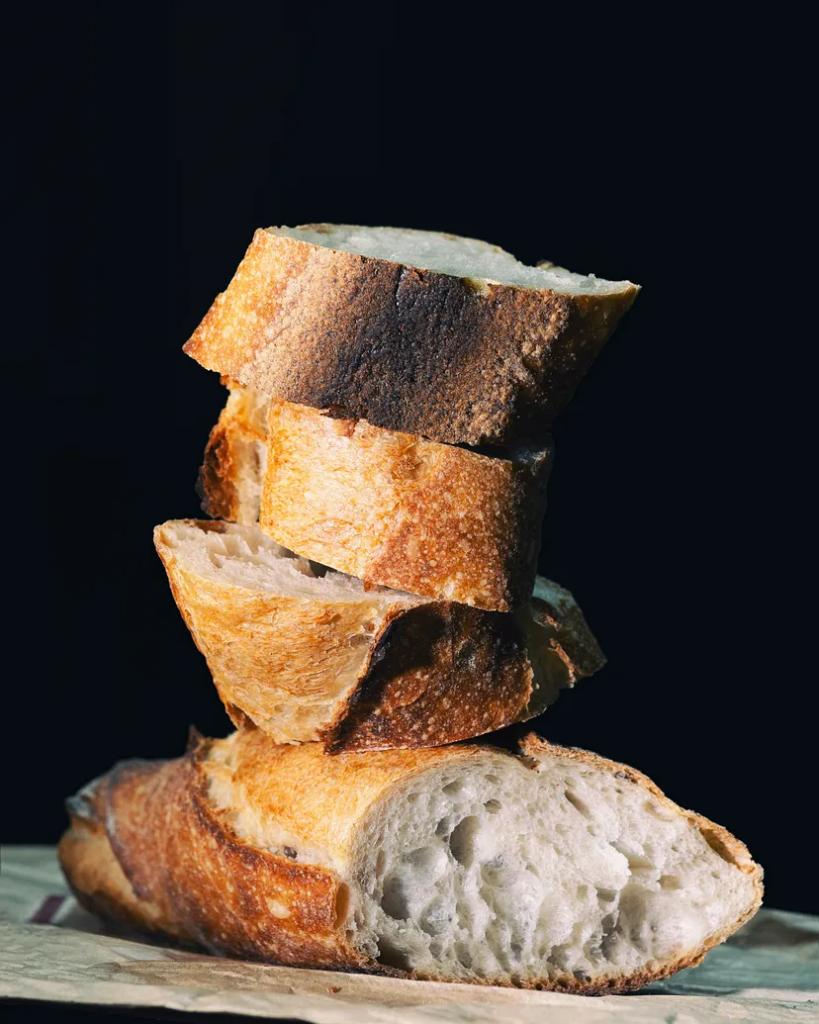
The smell alone is enough to make your mouth water. You tell yourself, “Just one piece,” but somehow, poof, half the basket is gone before the main course even arrives. Sound familiar? You’re not alone. Some folks even joke about needing a “bread rehab.” But is bread addiction a real thing, or are we just hopelessly dramatic about carbs?
Let’s dig into this doughy dilemma.
The Allure of Bread
Bread isn’t just food — it’s comfort.
That warm, fluffy texture paired with a buttery crust is like a hug for your soul. But here’s where it gets sneaky: bread contains simple carbohydrates that quickly break down into sugar in your body. And sugar? Well, it’s like the popular kid at school — your brain can’t get enough of it.
When you eat bread, your body releases dopamine, the “feel-good” chemical. It’s the same one that lights up your brain when you’re watching your favorite show, acing a test, or falling in love. No wonder your hand keeps reaching for another slice.
The Gluten Debate
Then there’s the big, bad gluten — wheat’s misunderstood poster child. Gluten is a protein that gives bread its chewy goodness. While some people genuinely can’t tolerate gluten due to celiac disease or sensitivity, most of us are fine. But thanks to modern diets demonizing gluten, it’s become the food world’s scapegoat for everything from bloating to brain fog.
Gluten isn’t inherently addictive.
What keeps us hooked is the combination of refined carbs, salt, and even sugar in most bread. It’s like bread has mastered the art of seduction — knowing exactly how to keep us coming back for more.
Bread Cravings vs Addiction
Cravings are like that crush you can’t stop thinking about — they’re intense but usually short-lived. Addiction, on the other hand, is when you lose control, and it starts interfering with your life. While bread doesn’t create a chemical dependency like drugs or alcohol, it can trigger psychological dependence.
Have you ever noticed how a stressful day can send you running for a baguette or croissant? That’s emotional eating. Bread becomes a coping mechanism — a soft, pillowy escape from reality.
Why Can’t I Just Stop?
Blame evolution.
Our ancestors needed high-calorie foods to survive, so our brains are wired to seek out energy-dense snacks like bread. Toss in modern food engineering — where bread is loaded with additives to make it extra delicious — and you’ve got a recipe for overindulgence.
But here’s the silver lining: you’re not powerless. Awareness is the first step. Next time you’re reaching for that second or third piece, pause and ask yourself: Am I actually hungry, or am I just bored, stressed, or in need of comfort?
So, Is Bread the Enemy?
Absolutely not. Bread isn’t the villain of your health story — it’s more like the mischievous sidekick. Enjoying bread in moderation is fine, especially when it’s part of a balanced diet.
Whole-grain breads, for example, pack fiber, nutrients, and slower-digesting carbs that won’t send your blood sugar on a rollercoaster ride.
The key is mindfulness. Savor your bread instead of wolfing it down. Maybe even pair it with protein or healthy fats to balance things out.
Final Crumb of Truth
So, can you get addicted to bread? Not exactly — but the cravings are real, and they’re rooted in biology, psychology, and a dash of emotional seasoning.
The next time you find yourself polishing off a loaf, remember: bread isn’t the enemy, but knowing why you’re eating it is your secret weapon.
And life’s too short to live without a good sourdough or a warm slice of toast slathered in butter. Just don’t let the breadbasket rule your world. Or as the saying goes, “Man does not live by bread alone.” But let’s be real — it sure helps.
Stay balanced, stay nourished, and may your bread always rise!









